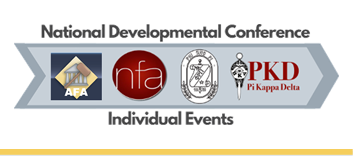Document Type
Forensic Leadership Issues
Abstract
This paper seeks to both provide structure and formalization to the process of assessment, as well as to answer the question, "Is it possible to run a 'successful' program that’s not based in competitive success?" These recommendations serve both as a companion document and as an expansion of the recommendations previously made with regard to promotion and tenure (Dreher, 2010). The Peoria Recommendations dealt with questions to be asked of all forensic educators, documentation of teaching, research, and service, and questions to be asked by internal and external reviewers, and are summarized in appendix 1. This paper will provide further detail about the kinds of questions forensics professionals should use to evaluate their own performance, as well as to provide further guidance for internal and external reviewers. The role that forensics team members play in evaluation will also be discussed. The remainder of this pa-per will consider each of the five purposes (hereafter identified as standards) in light of appropriate literature from the forensics community, higher education assessment, and leadership.
Creative Commons License

This work is licensed under a Creative Commons Attribution 4.0 International License.
Rights Statement
In Copyright https://rightsstatements.org/page/InC/1.0/?language=en
Recommended Citation
Dreher, Michael
(2010)
"The Bloomington Recommendations: Improving Forensic Leadership by Continuing the Conversation on Evaluating the Forensics Professional,"
Proceedings of the National Developmental Conference on Individual Events: Vol. 5:
Iss.
1, Article 26.
Available at:
https://cornerstone.lib.mnsu.edu/ndcieproceedings/vol5/iss1/26

